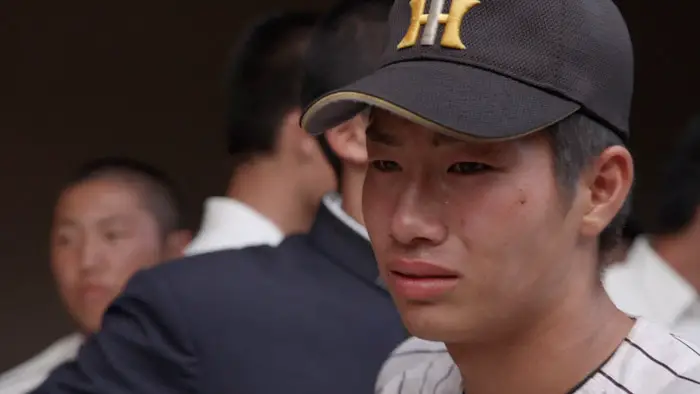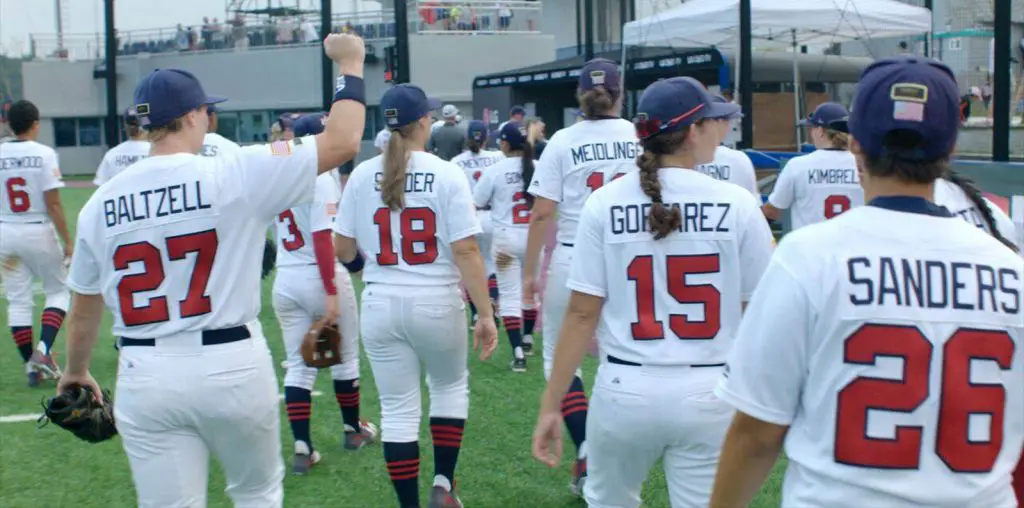
The camaraderie and sportsmanship of athletics is one that many directors display in their films. It usually offers a safe, escapist type of environment for the viewer to enjoy. Following a by-the-books formula, the sports subgenre engraved itself into the entertainment industry. Plotwise there isn’t much interest when looking at this type of story at face value, but coming at it from a different angle, a dynamic story could be conceived. Ema Ryan Yamazaki’s documentary Koshien: Japan’s Field of Dreams does just that.
It finds a new angle by focusing on a culture that hasn’t been explored nearly as much as it should have in sports films: Japan. The impact that baseball has on the populace of Japan cannot be overstated. As such, it’s nice to see a film that actually highlights the sheer amount of people whose lives revolve around it.
The story of Koshien: Japan’s Field of Dreams follows two baseball teams as they pine for glory in Japan’s national high school baseball championship, Koshien. The training is tough, and the coaches are tougher. As mentioned earlier, baseball is a huge part of the Japanese athletic culture, so even making it to Koshien is a tremendous honor. Yamazaki presents her cultural exploration in an honest way. The changes that Japan went through in the 20th century heavily differentiate American and Japanese baseball practices.

“…follows two baseball teams as they pine for glory in Japan’s national high school baseball championship…”
The scenery of the baseball field is amplified by Jason C*****g’s versatile score. His compositions never become stale, as the melodies and intent of the music are always changing as the film progresses from just explaining the significance of baseball to showing the effects of the sports on the subjects’ lives. All of the training scenes showcase the formality of the practice sessions. The music and cinematography both culminate together, creating an abundance of visceral scenes.
Sadly, the influence that Japanese culture had on baseball isn’t fully realized. Outside of a few moments in the beginning, it’s not discussed any further. This history is so interesting, and shining a brighter light on it could bring about a broader context of why baseball is so important to the people who play and coach it. The camaraderie between players is another point that should’ve been emphasized more. It humanizes the characters past their aspirations. While wasted potential isn’t an inherent flaw, a lot of the runtime is spent on not developing these aspects in favour of looking at events from face value.
Of the many themes shown in Koshien: Japan’s Field of Dreams, the two most prominent are failure and passion. The ever-looming threat of failure creates a sense of unity that binds the players and coaches together. It forms a relationship between them, both of whom depend on each other to succeed and make it to Koshien. This desire to win translates into a deep passion for baseball. People who have found glory are treated like legends, having incoming high schoolers look up to them long after they’re dead. This is an honor that is sought after by both the coaches and the players; to be memorialized.

"…the influence that Japanese culture had on baseball isn't fully realized."


